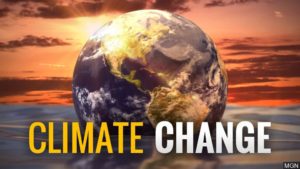By Renae Reints
The United Nations’ Intergovernmental Panel on Climate Change (IPCC) is meeting in South Korea this week to discuss the finalization of a report on how the world could limit global warming to below 1.5 degrees Celsius, or 2.7 degrees Fahrenheit, above pre-industrial levels.
This limit was set as the best-case scenario for reducing the risks of climate change in the Paris Agreement of 2015, but actually achieving this will require some drastic changes from nations around the world. The planet has already warmed by 1 degree Celsius, and greenhouse gas emissions that trap heat in the atmosphere remain at record highs.
To truly remain below the 1.5 degree threshold—reducing the possibilities of stronger storms, rising seas, and the impacts these effects have on both sensitive ecosystems and impoverished human communities—the world needs to do much more than what’s outlined in the Paris Agreement.
“The pledges countries made during the Paris climate accord don’t get us anywhere close to what we have to do,” Drew Shindell, a climate expert at Duke University and one of the authors of the IPCC report, told The Washington Post. “They haven’t really followed through with actions to reduce their emissions in any way commensurate with what they profess to be aiming for.”
According to Shindell, keeping warming below 1.5 degrees will require the world’s carbon dioxide emissions to drop by 40% within the next 12 years. And by 2050, nations should have zero net emissions. This means no more gas engines, no coal-fired power plants, and increased use of biofuels and renewable energies.
“These are huge, huge shifts,” Shindell told the Post. “This would really be an unprecedented rate and magnitude of change.”
Strategies to make these changes, and what they would mean for the planet’s future, are currently under debate by the IPCC, comprised of more than 130 world representatives and 50 scientists. A draft summary of their work was leaked to Climate Home News this summer, but they aim to officially release the final Special Report on Global Warming of 1.5C on Monday.

